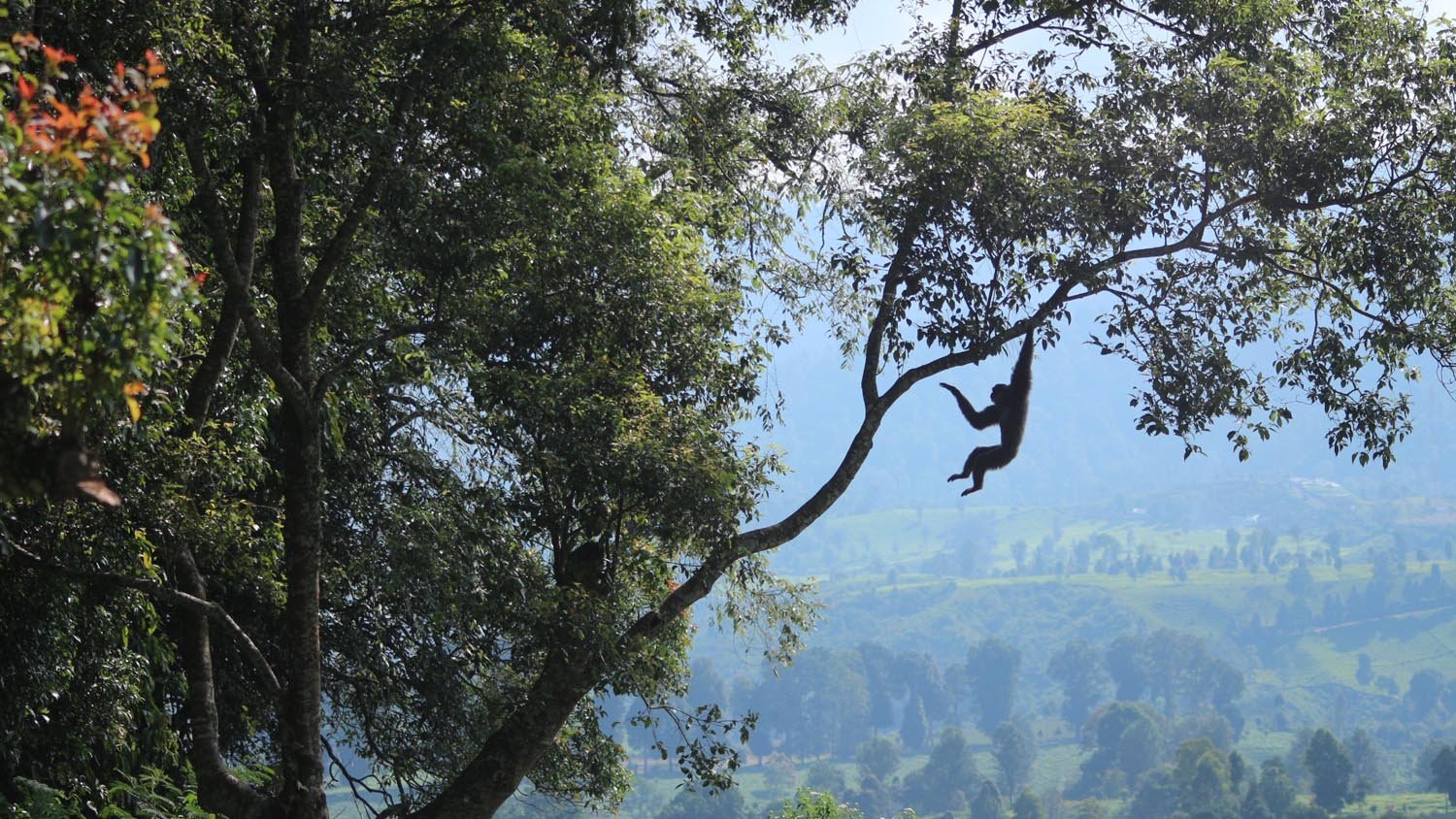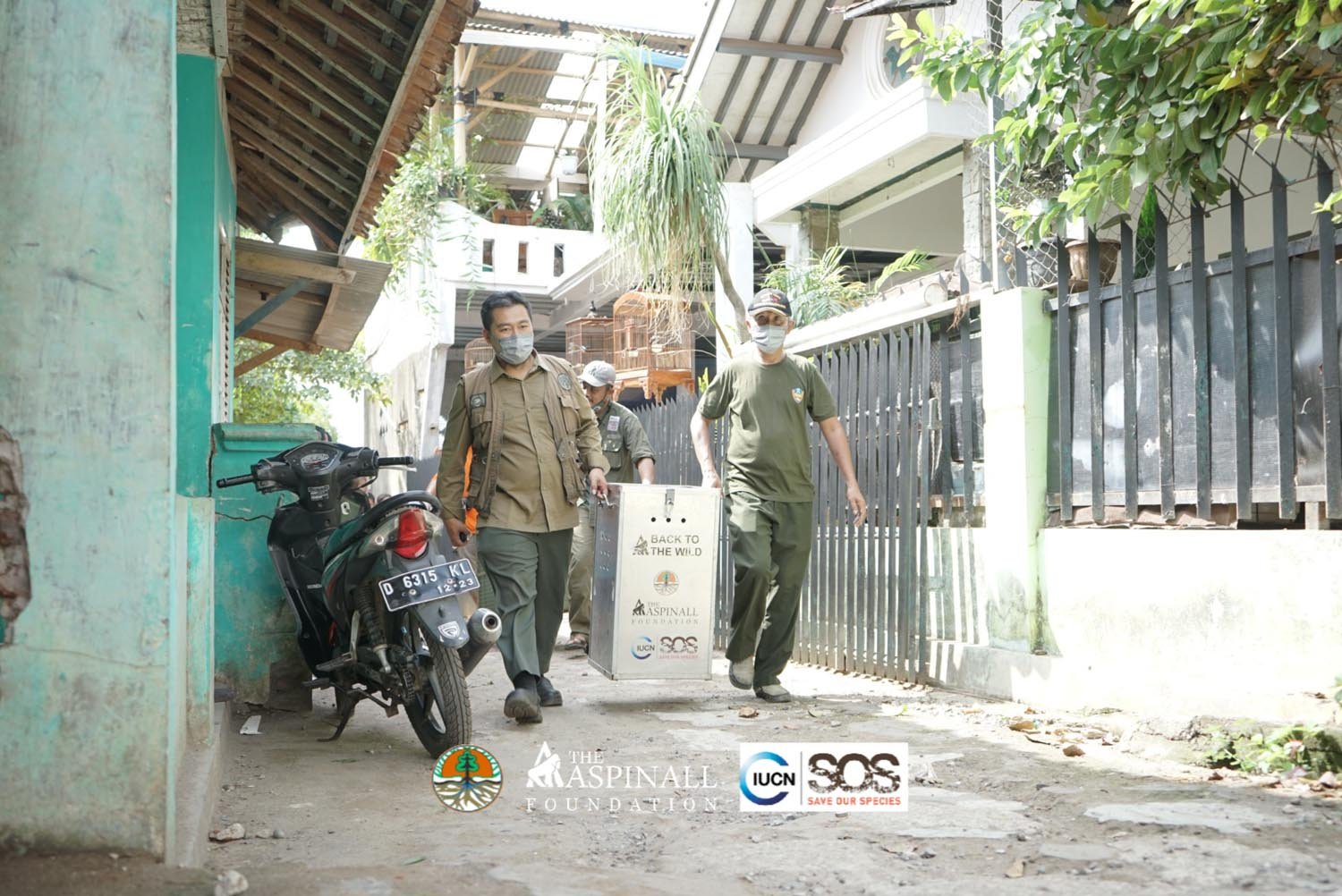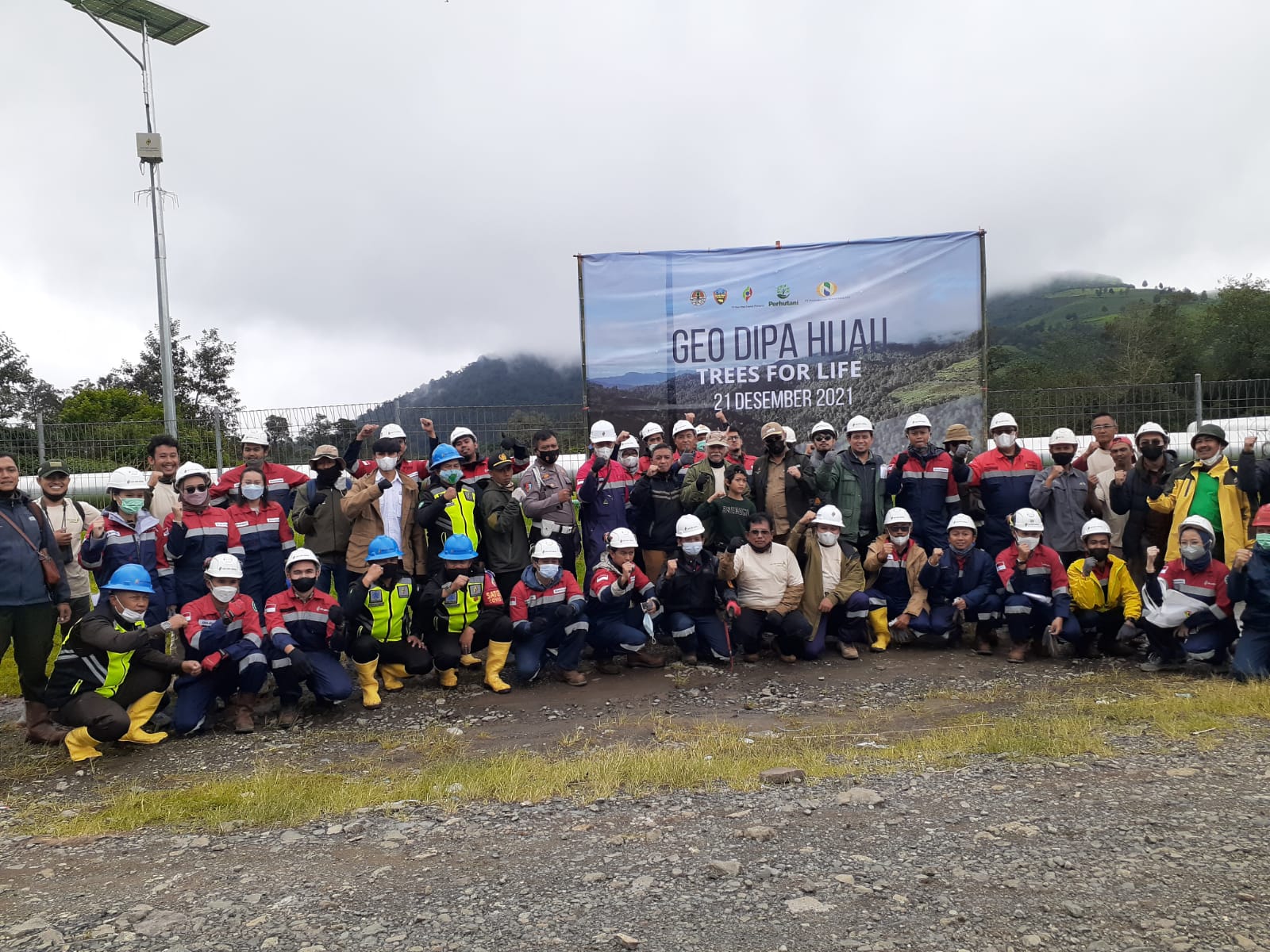From August 2020 until the end of December 2022, our Mt Tilu Javan Gibbon reintroduction project has received the welcome support of IUCN Save Our Species. A life of freedom for Goku, a released female gibbon at Mt Tilu NR © The Aspinall Foundation
A life of freedom for Goku, a released female gibbon at Mt Tilu NR © The Aspinall Foundation
The project began as the impact of the coronavirus pandemic surged across the world. In common with most countries, Java faced severe impacts from the necessary restrictions imposed by its government in the struggle to contain the virus and save lives. At our Javan Primate Rescue Centre (JPRC) additional concerns about the potential transmission of the disease to the animals under our care was a significant worry, and required new protocols and procedures to be implemented to ensure our work could continue. Javan gibbon rescue June 2021 © The Aspinall Foundation Indonesia
Javan gibbon rescue June 2021 © The Aspinall Foundation Indonesia
Working in collaboration with the relevant authorities, our team in Indonesia continued with its full range of activities, although some modifications were required. One of the most severely impacted elements of our work over the past couple of years has been our education programme. Normally the team would host school visits to learn about the work being carried out at our rehabilitation centres, and they would regularly visit schools to give talks and presentations. The pandemic made these activities impossible for most of the time. Determined not to lose this valuable contact with the younger generation, online webinars were offered instead. Whilst these were well supported, we were delighted when school visits were possible again, although it wasn’t until the end of August 2022 that the restrictions were lifted and the visits could start again.
.jpg?width=1500&height=843&name=Education%20SD%20Kendeng%20(2).jpg) School children enjoy visits from our team to learn about conservation © The Aspinall Foundation
School children enjoy visits from our team to learn about conservation © The Aspinall Foundation
Despite this additional complication, as we look back over the past two and a half years since IUCN Save Our Species began to support our work with Javan gibbons, and our release programme at Mt Tilu Nature Reserve, we are pleased to report that much has been achieved. Although restrictions, followed by administrative changes and delays, has meant that we have yet to re-commence the repatriation of UK-bred gibbons from our parks in Kent to Java, this is the only aspect of the project that has yet to achieved.
There are too many activities to report on in full in this article, but we can advise we received 16 wild-born gibbons into our care at JPRC, all confiscated from the illegal pet trade and 18 gibbons have completed the rehabilitation process to be released back into the wild at Mt Tilu NR..jpg?width=1500&height=1000&name=2212%20Femi%20(42).jpg) Femi enjoying her life back in the wild 19 months post-release © The Aspinall Foundation Indonesia
Femi enjoying her life back in the wild 19 months post-release © The Aspinall Foundation Indonesia
Daily patrols at release sites have allowed our team to monitor the released gibbons, and the protection of the nature reserve has been increased by joint patrol activities with forestry rangers, local community groups, representatives from the BBKSDA, and KPHK (the Conservation Forest Management Unit). The BBKSDA (The Natural Resources Conservation Bureau of West Java) is our main collaborative partner in respect of patrols and the enforcement and execution of the law in respect of the illegal activities found in the nature reserve is undertaken by them.%202211.jpg?width=1500&height=1000&name=Patrol%20monitoring%20(2)%202211.jpg) Observations are recorded from daily monitoring of released gibbons © The Aspinall Foundation Indonesia
Observations are recorded from daily monitoring of released gibbons © The Aspinall Foundation Indonesia
Our community programme, although also impacted by the pandemic, has continued to reinforce exisiting relationships with the businesses and local communities who live and work around the Mount Tilu nature reserve, and new companies have participated in some of our events.
 New company support from PT Geo Dipa Energy at a tree planting event © The Aspinall Foundation Indonesia
New company support from PT Geo Dipa Energy at a tree planting event © The Aspinall Foundation Indonesia
We were expecting that by the end of 2022 the only Javan gibbons remaining at JPRC would have been those that are currently too young, or for health reasons, cannot be released just yet. However, on the 24th of December, another gibbon confiscated from the illegal pet trade arrived, and so the process of rehabilitation for this Endangered species began again just before Christmas. Sadly, by the time she has completed her time in quarantine, the Centre will doubtless have received others to join both her and the other primates as they progress on their individual journeys to a life back in the wild.
It is thanks to the incredible dedication of conservationists like our team in Indonesia, combined with the support of organisations such as the International Union for Conservation of Nature (IUCN) and generous funders that this work continues.
This project is co funded by IUCN Save Our Species. The contents of this article are the sole responsibility of The Aspinall Foundation and do not necessarily reflect the views of IUCN.

